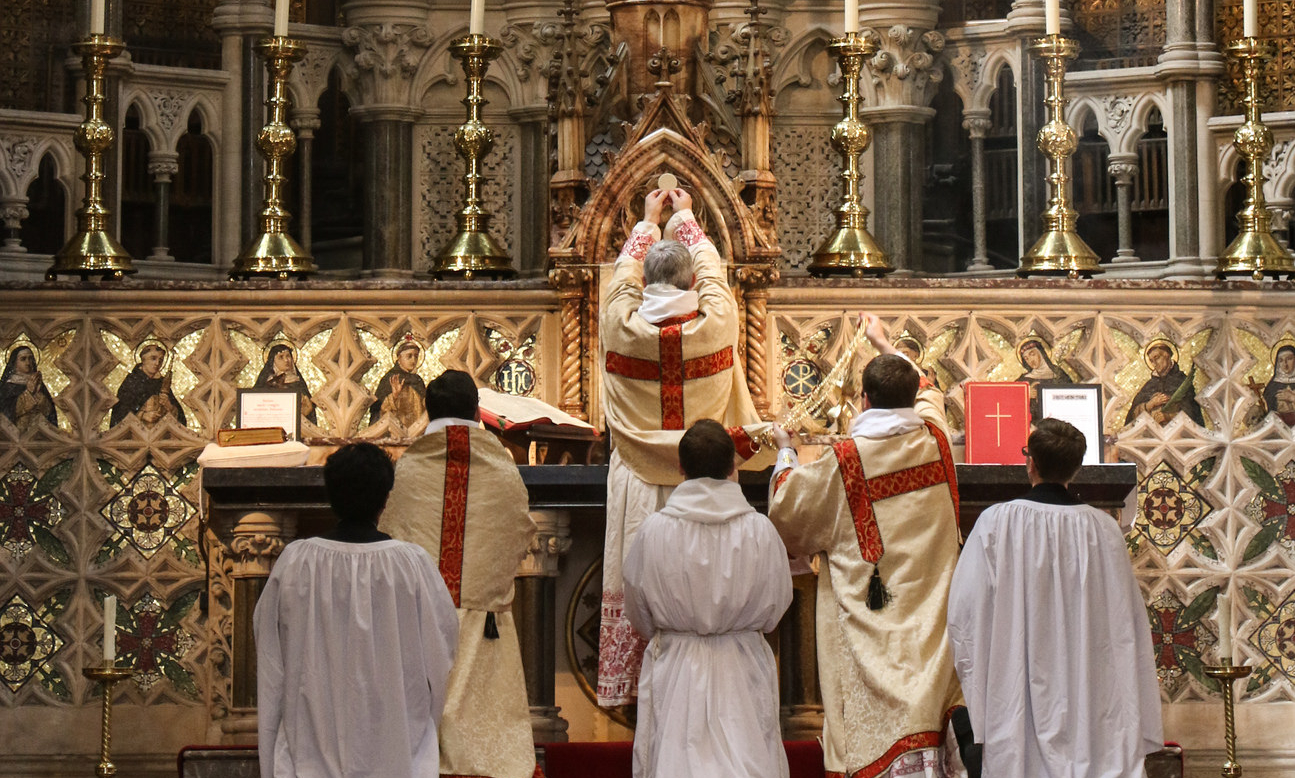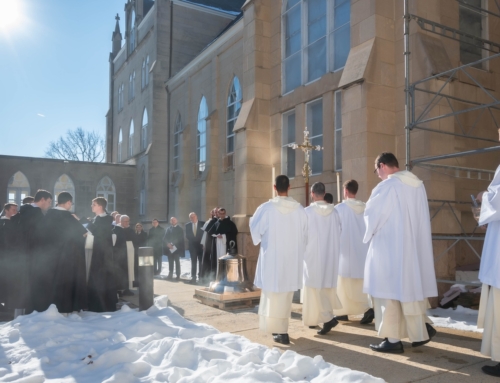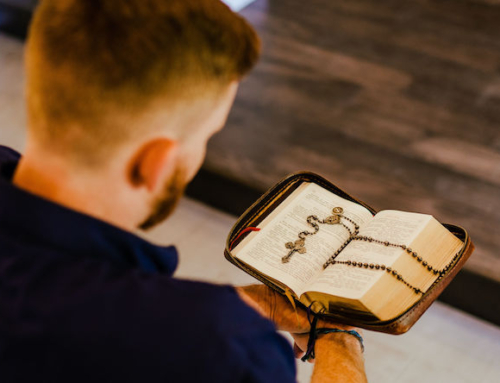“The Word was made flesh, and dwelt among us.” Because Our Lord took on human flesh, our religion, our faith, is not merely spiritual. It is also physical. Our Lord took on human flesh, so that he could die upon the cross for our sake. And this physical aspect of our faith is essential to our salvation and is expressed most fully in the celebration of the holy sacrifice of the Mass.
In the Eucharist, Our Lord makes himself present on the altar, under the appearance of bread and wine. Physical food, which we can eat. Nourishment for the body, and, more importantly, nourishment for the soul. The physicality of what was bread and wine only scratches the surface of the material aspect of our celebration of the Eucharist. For the whole celebration of the holy sacrifice of the Mass is imbued with physicality, from the structure in which we worship to the actions we perform.
A beautiful church draws a person to the divine. It draws our gaze heavenward, or perhaps towards the tabernacle, where Our Lord dwells on earth. It allows us to focus on the sacrifice taking place on the altar. The physical structure points to a divine reality. This is aided by the actions of the Mass. The incense, which carries our prayers heavenward. The bells, which bring our attention to the altar at the most crucial moments. The candles placed throughout the sanctuary call to mind the passage of time, as they are lit and extinguished with each celebration. In the course of a single liturgy, all of our senses are active, our physical bodies bringing us to spiritual realities.
We are spiritual beings, but we have physical bodies. This is no accident. For our Lord took a human body unto himself, for our sake. Because of this, when we offer him worship, we do so with our whole selves, body and soul. To do any different would be to withhold a portion of ourselves from our creator. And he who created us, who gave us all that we have, deserves nothing less than our whole self in return.
✠
Image: Lawrence Lew, O.P., My Lord and My God (used with permission).







